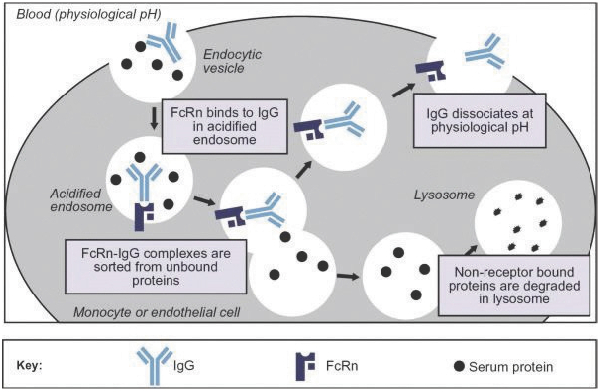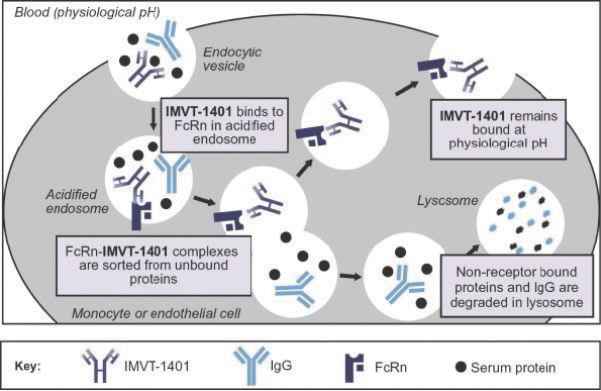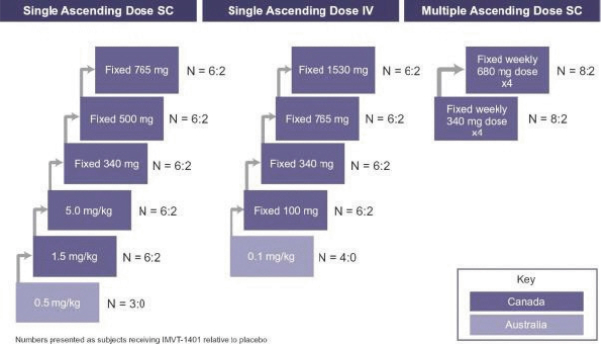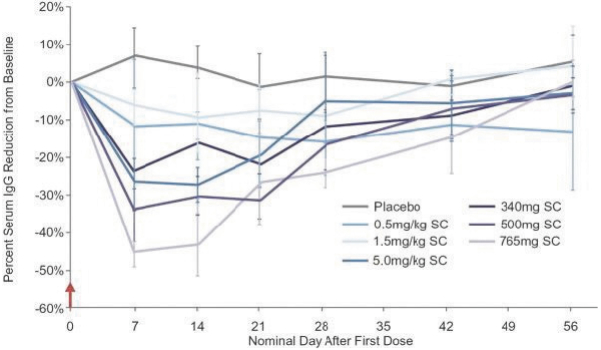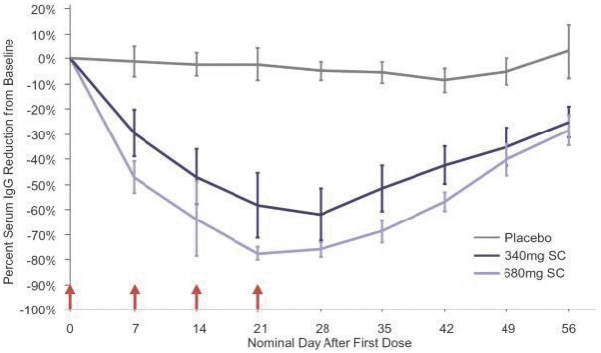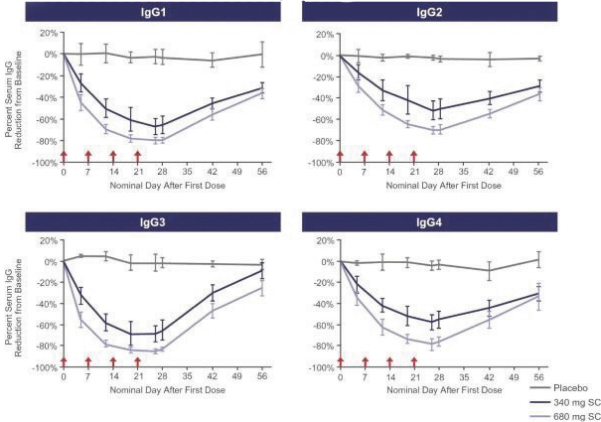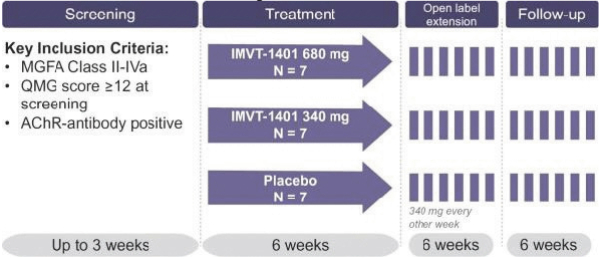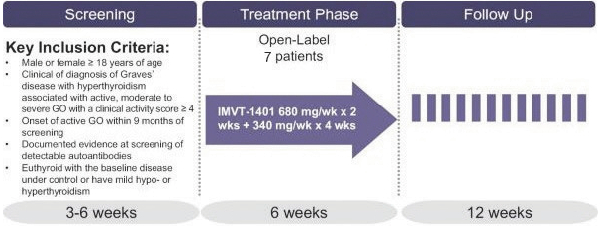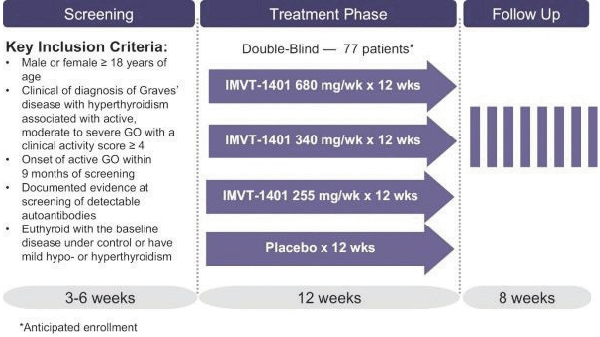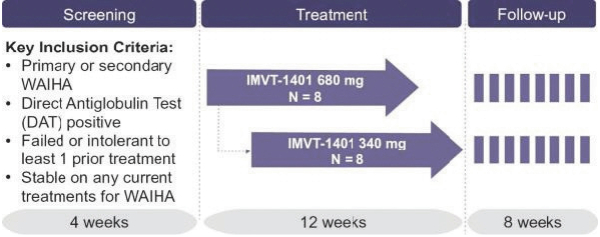our patent claims. In addition, patents, if granted, expire and we cannot provide any assurance that any patents will be issued from our pending or any future applications or that any potentially issued patents will adequately protect our products or product candidates.
Following our assumption of all rights, title, interest and obligations under the HanAll Agreement from RSG in December 2018, by virtue of the license of patent rights under the HanAll Agreement, we are the exclusive licensee of a patent family directed to IMVT-1401, and certain back-up and next-generation antibodies, and products containing such antibodies, in the Licensed Territory. As of August 17, 2020, this licensed patent family includes patent applications pending in the United States, Argentina, Brazil, Canada, European Patent Office, Egypt, Israel, Mexico and Saudi Arabia. These patent applications disclose the antibody, pharmaceutical composition thereof, methods of treating autoimmune disease using the same, polynucleotide encoding the antibody, expression vector including such polynucleotide, host cell transfected with such recombinant expression vector, methods of manufacturing the antibody and methods of detecting FcRn in vivo or in vitro using the antibody. Generally, the term of any patent granted from a patent application in the in-licensed HanAll patent family directed to the IMVT-1401 composition of matter and methods of use has a projected natural expiration and will expire on April 30, 2035 in the United States and in other jurisdictions, subject to such terms as may be modified by, for example, terminal disclaimer or any adjustment or extension of patent term that may be available in a particular jurisdiction. Notably, in this patent family, a U.S. patent in the patent family was issued on July 2, 2019, with claims directed to an isolated anti-FcRn antibody or antigen–binding fragment thereof, and a pharmaceutical composition comprising such antibody or antigen-binding fragment thereof. Furthermore, another U.S. patent was issued in this patent family on January 28, 2020, with claims directed to an isolated anti-FcRn antibody or antigen-binding fragment thereof, a pharmaceutical composition comprising such antibody or antigen-binding fragment thereof as well as methods of treating various autoimmune diseases using the antibody, polynucleotides and expression vectors encoding the antibody, host cells capable of expressing the antibody and methods of producing the antibody. Additionally, as of August 17, 2020, independent of the licensed patent family, ISG has a patent family that includes an internationally filed patent application and patent application pending in Argentina. This patent family is directed to methods of treating thyroid eye disease using anti-FcRn antibodies, and any patent issued from this patent family is expected to expire in 2039, exclusive of any patent term adjustment or extension.
In the United States, if all maintenance fees are timely paid, the natural expiration of a patent is generally 20 years from its earliest U.S. non-provisional filing date, as the term of a patent granted on a utility patent application filed after June 8, 1995 expires 20 years after the non-provisional U.S. filing date (or any earlier filing date relied upon under 35 U.S.C. 120, 121, or 365(c)), with the timely payment of maintenance fees. In certain instances, the patent term may be adjusted to add additional days to compensate for certain delays incurred by the U.S. Patent and Trademark Office, or USPTO, in the examination process, issuing the patent and/or the patent term may be extended for a period of time to compensate for at least a portion of the time a product candidate was undergoing FDA regulatory review. However, the patent extension granted for FDA regulatory review is only applied to a single patent that covers either the product candidate or a method of using or manufacturing the same which has not expired at the time of FDA approval. Additionally, the period of time the patent is extended may not exceed five years, and the total patent term, including the period of time the patent is extended, must not exceed 14 years following FDA approval. The duration of foreign patents varies in accordance with provisions of applicable local law, but typically is also 20 years from the earliest effective non-provisional filing date. The protection afforded by a patent with respect to a particular product varies on a product-by-product basis, from country to country, and depends upon many factors, including the type of patent, its coverage, the availability of regulatory-related extensions, the availability of legal remedies in the particular country and the validity and enforceability of the patent under the local laws. ISG owns a trademark for IMMUNOVANT, the corporate logo, and a composite trademark for its corporate logo with the IMMUNOVANT mark. As of August 17, 2020, this trademark portfolio included registration of the Immunovant trademark in the United States, Argentina, Brazil, Bosnia & Herzegovina, Chile, China, Colombia, EU, Hong Kong, Iceland, Indonesia, Israel, the International Register, Japan, Liechtenstein, Mexico, Monaco, Montenegro, New Zealand, Norway, Philippines, Russian Federation, Saudi Arabia, Serbia, Singapore, South Korea, Switzerland, Taiwan, and the United Kingdom plus registration of the Immunovant logo
116

